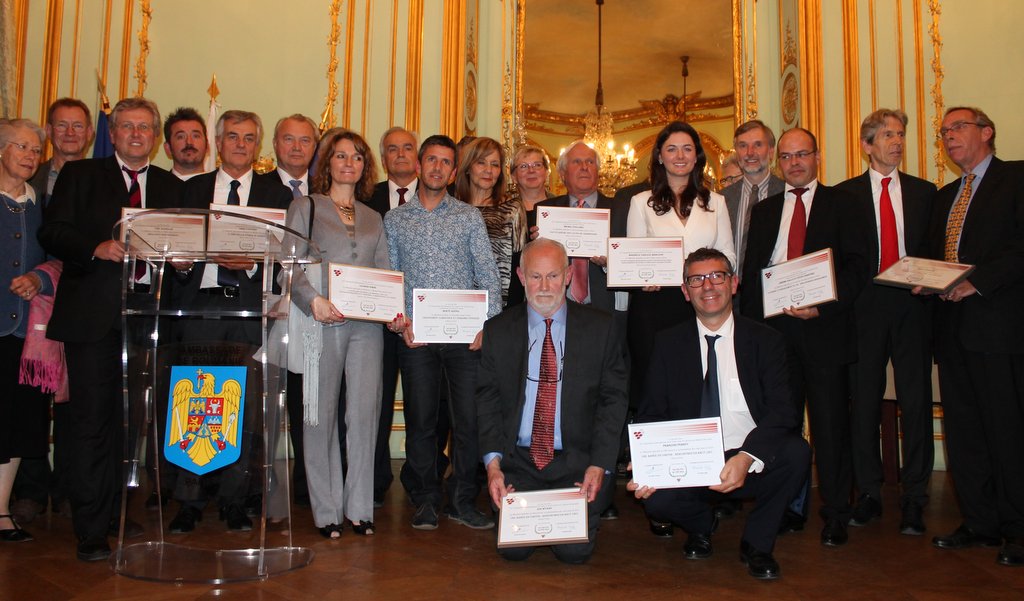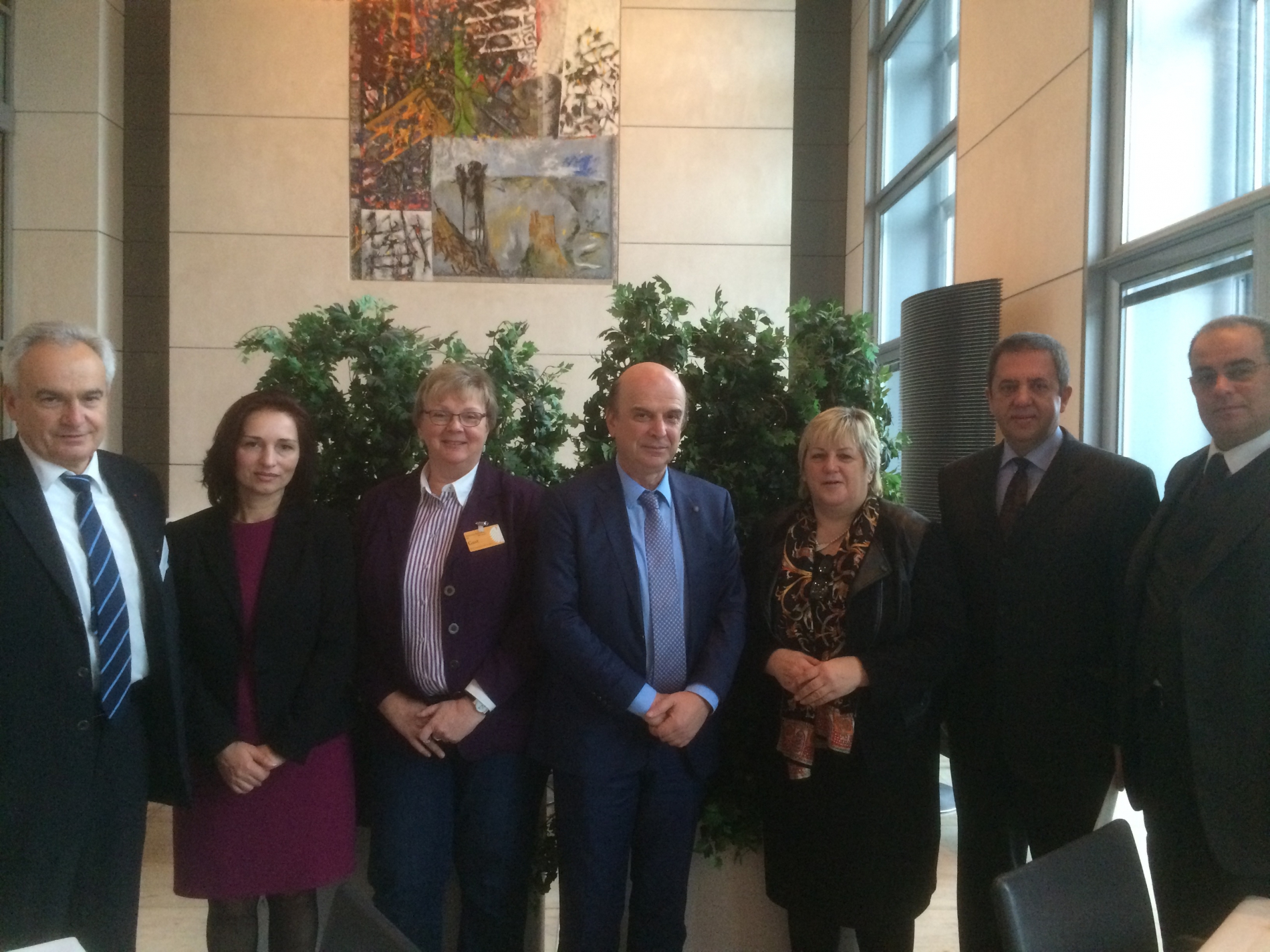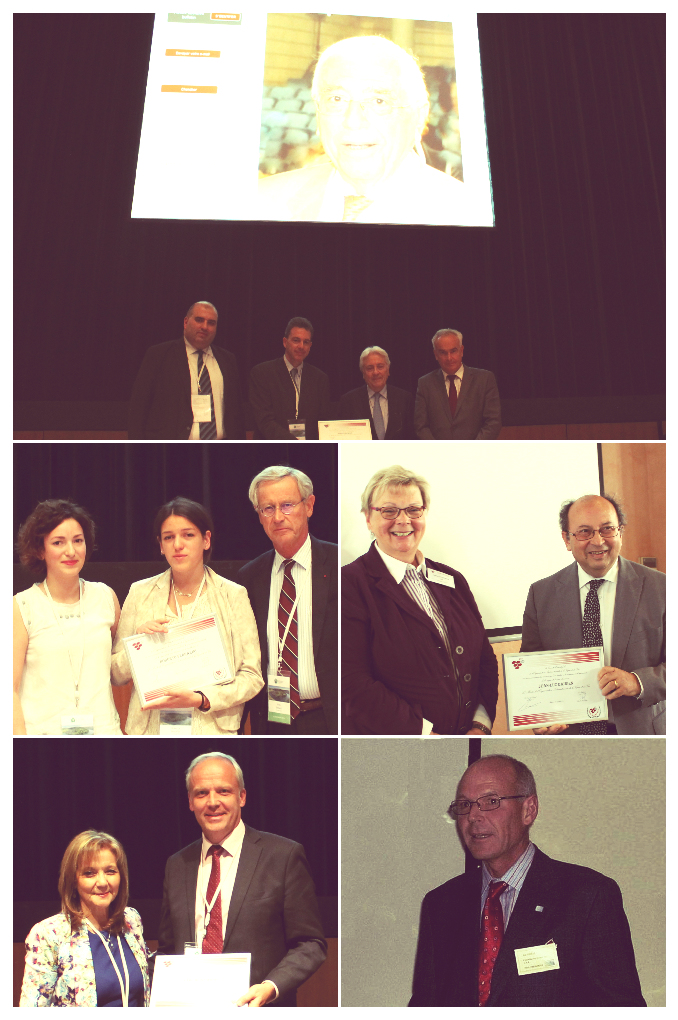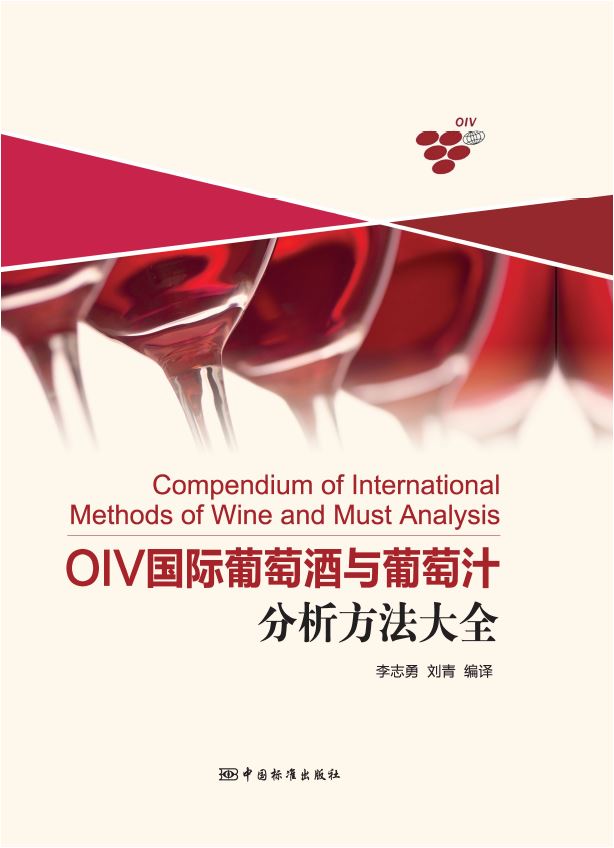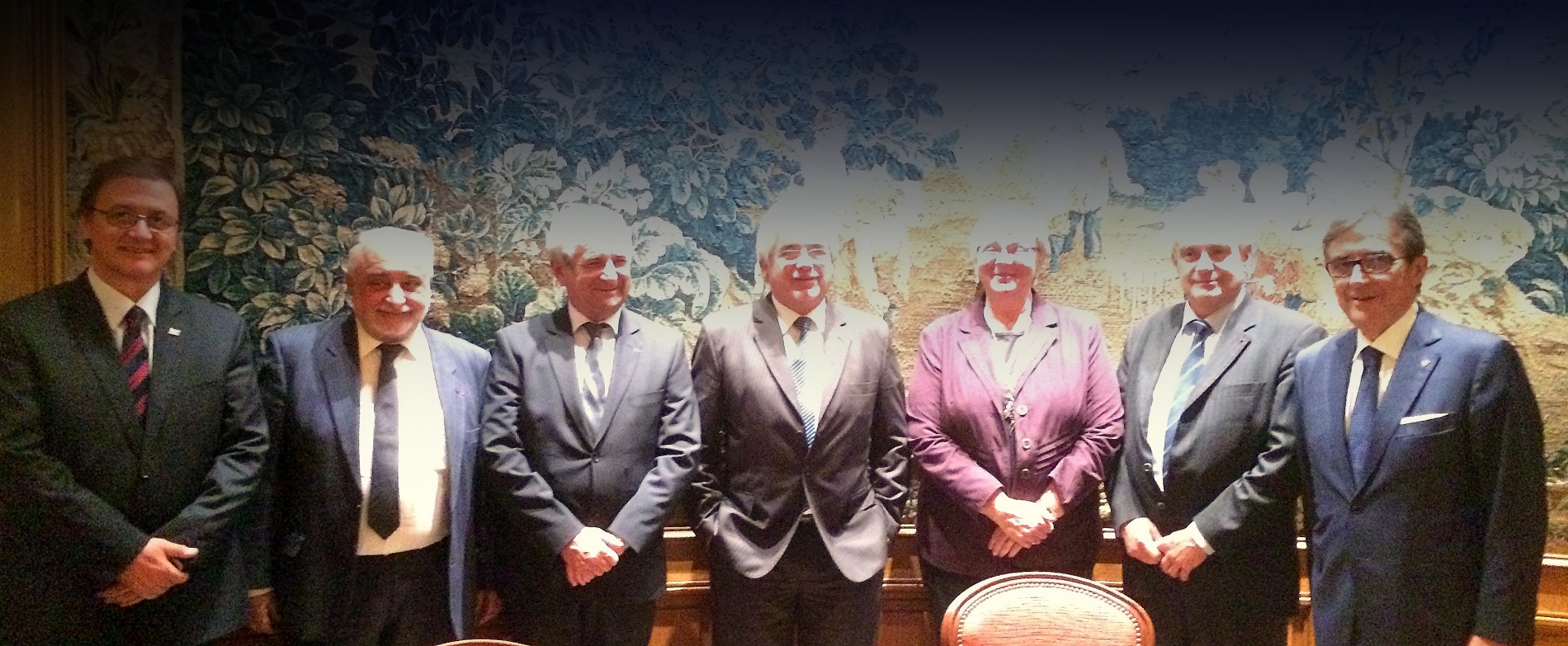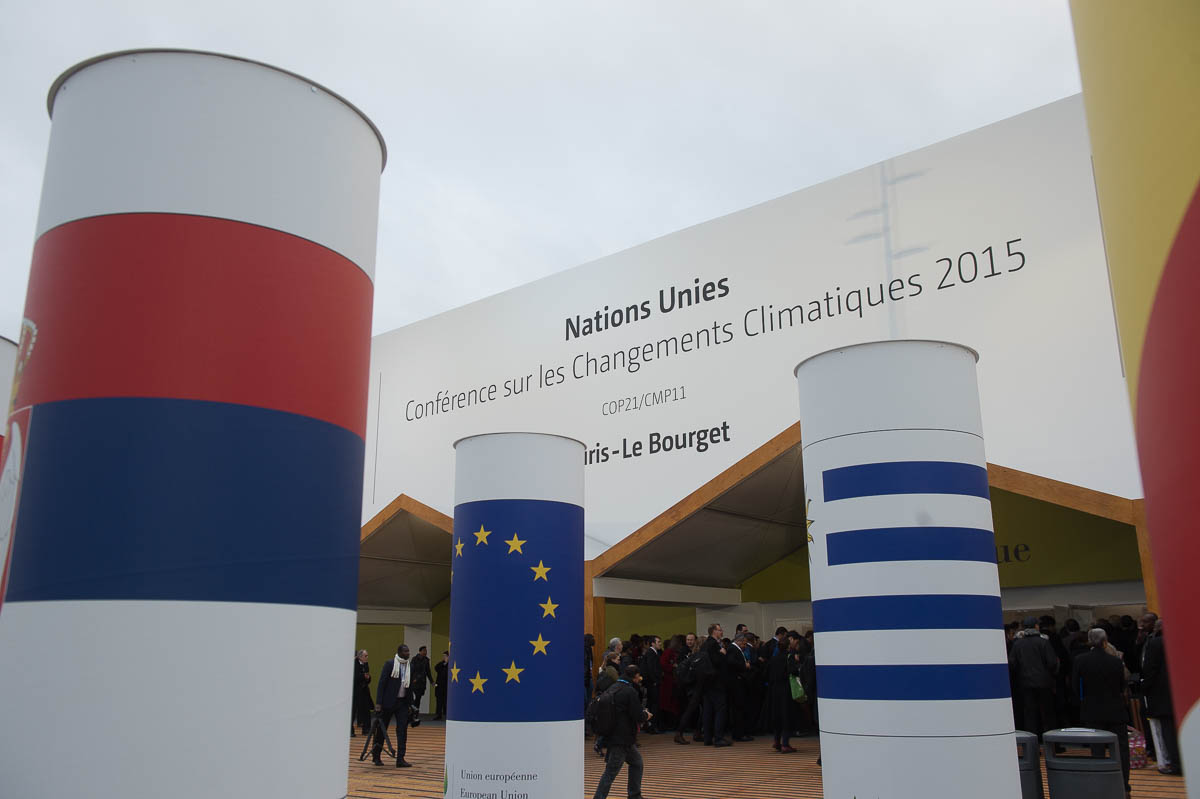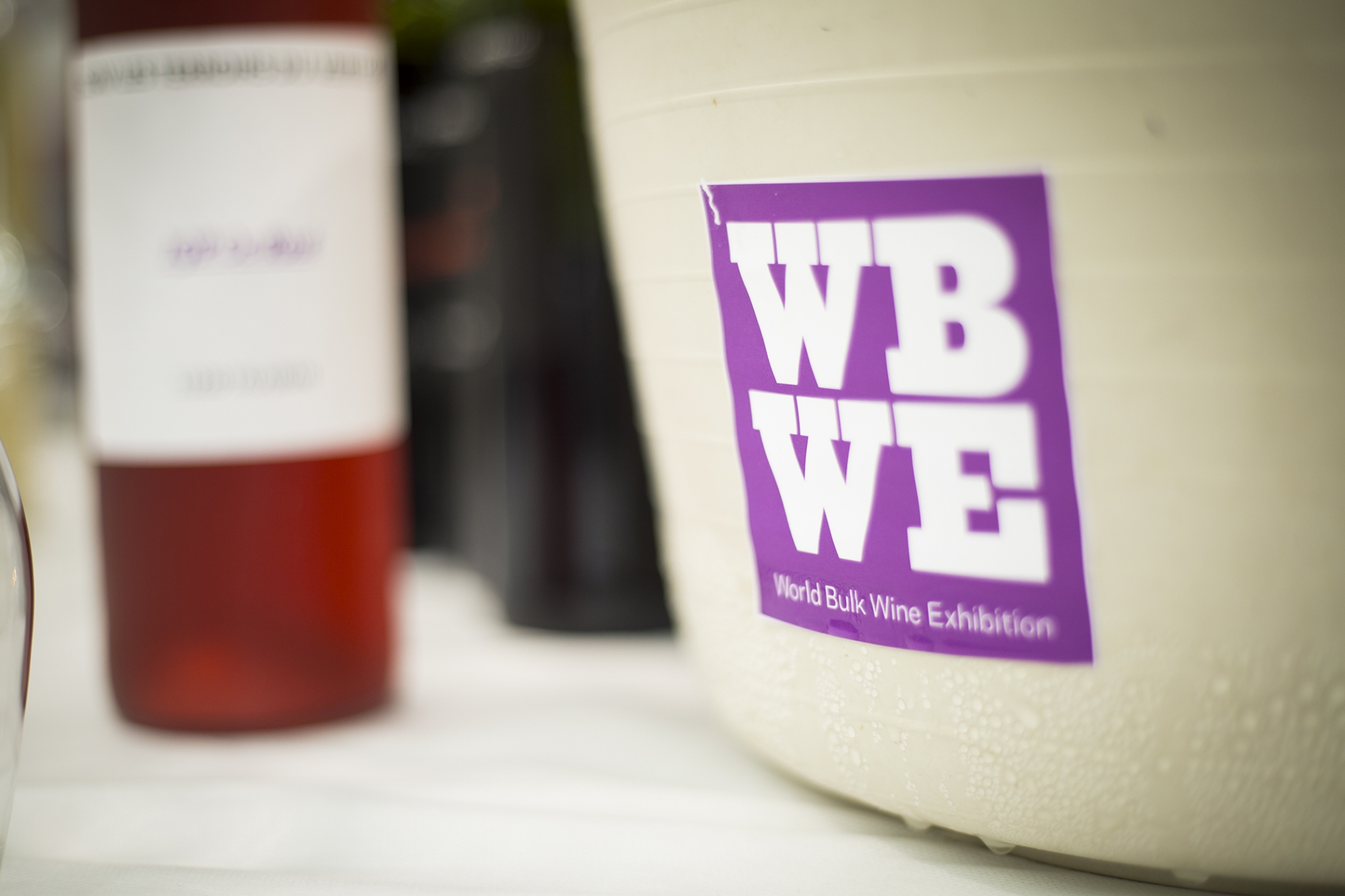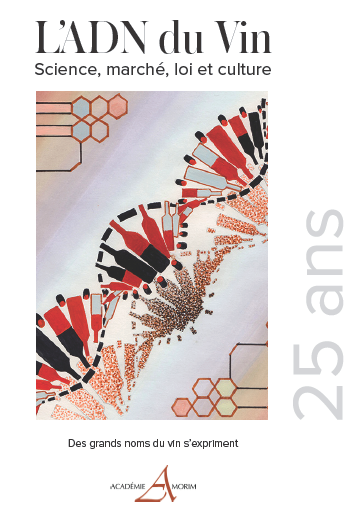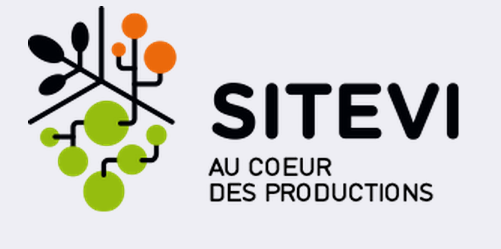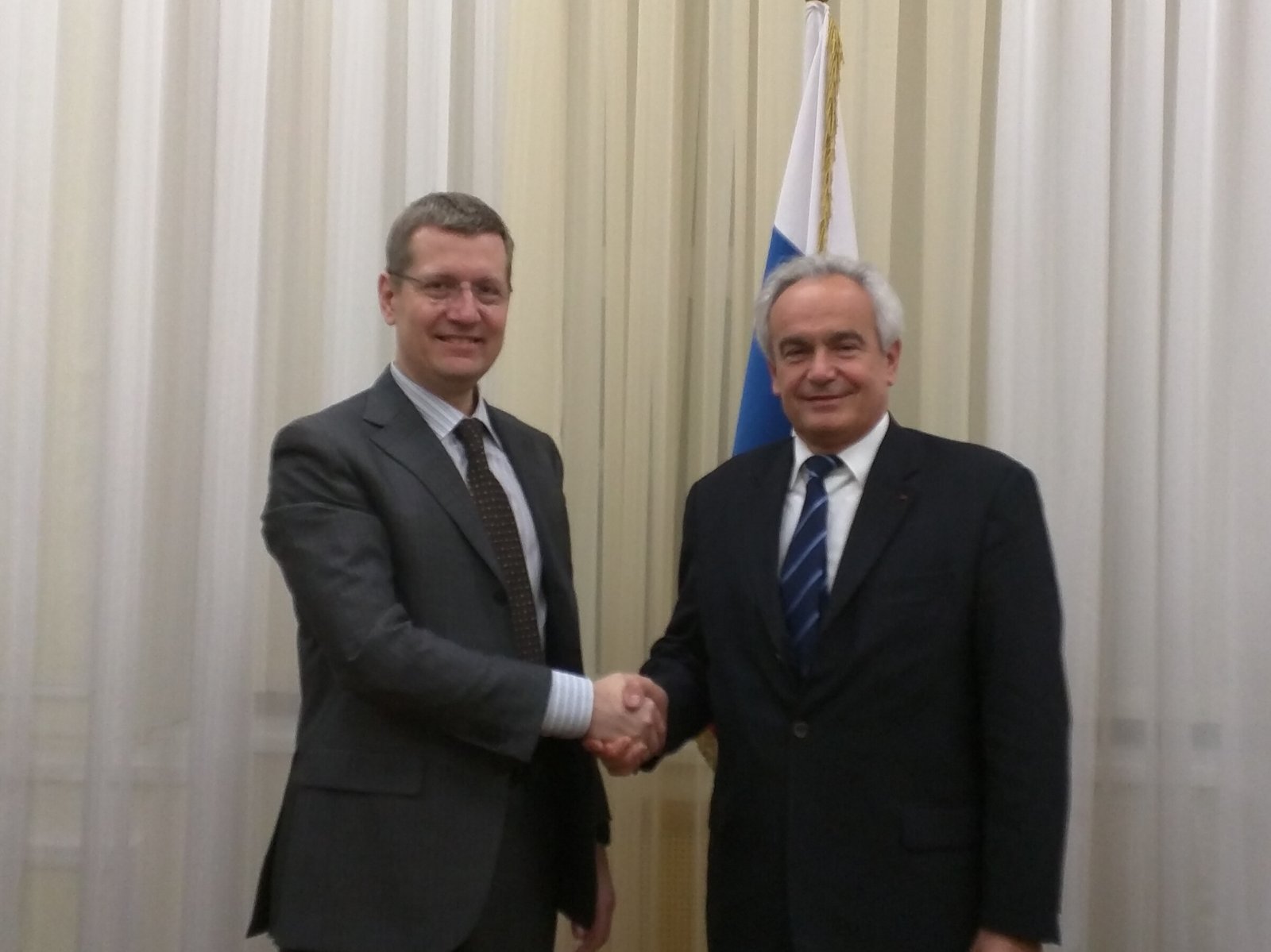20 янв 2016
The increase in the number of works presented to the OIV Award Jury is related not only to the growth in worldwide literature about vine and wine by many authors, but also the significant international recognition of the OIV Awards : a benchmark in a sector which continues to grow and develop. For information on the Award Jury and the OIV Awards : Download the document
- What does the Award presented by the Award Jury provide?
- What are the categories specified by the Award Jury?
- What are the terms and conditions for submitting a work?
18 янв 2016
They also met with the German Federal Minister for Food and Agriculture, Christian Schmidt. Monika Christmann and Jean-Marie Aurand had several meetings with the Ministers and representatives for the OIV Member States present in Berlin. During a breakfast in the parliament building at the initiative of Ms Kordula Kovac, member of the German Bundestag (national parliament) and also President of the "Wine Group", the OIV President and Director General met with Mr Edmond Panariti, Albanian Minister for Agriculture. The Minister showed a keen interest in the OIV and its missions at a time when Albania wishes to revive its wine production and modernise the sector.
23 дек 2015
In July, Claudia Quini, the then President of the OIV, gave an award to Dr Karl-Heins Wilms (picture: Michael Koehler received the award on behalf of Dr Karl-Heins Wilms), who has devoted his professional activity to the wine sector for more than 20 years as the Head of the German delegation of the OIV. She highlighted the exemplary nature of the German participation in the OIV which, in this period, has hosted two world congresses and had two presidents of the Organisation. Mr Yves Bénard, Vice-President of the OIV, paid tribute, posthumously, to his Italian oenologist colleague, Professor Roberto Ferrarini. He was the Director of Research and Director of the departments of Development and University Research; a professor on the viticultural and oenological sciences course at the University of Verona and a member of the Italian Academy of Vine and Wine; as well as a member of the Italian OIV delegation on behalf of the Ministry of Agriculture, notably as part of the "Oenology" Commission and the "Technology" Expert Group. Mr Jean-Marie Aurand, Director General of the OIV, gave a posthumous award to Mr Serge Hochar, who was involved in OIV activities for 20 years and was a major player in the renovation and development of Lebanon's wine sector. He was one of the architects of Lebanon's wine legislation established in 2000, Founder and President of the Union Vinicole du Liban and, more recently, President of the National Institute of Vine and Wine. He successfully positioned Lebanese wines on the international stage, a tireless ambassador dedicated to his passion and vision for his country's viticulture. In October, the President of the OIV, Monika Christmann, presented the OIV Merit Award to Jean-Luc Dairien, currently the Director General of the French National Institute of origin and quality (INAO). She stressed Mr Dairien's contribution to the vitivinicultural sector both at the national level in his work as the ONIVINS Director as well as in his devotion to the OIV's “Economy and Law” Commission for ten years as its Scientific Secretary and President. Finally, the OIV also granted its Merit Award to James Finkle, who died in September 2015 before receiving this recognition. He chaired the International Federation of Wines and Spirits (FIVS) for nearly 17 years. Under his leadership, the Federation has become the representative of the wine sector, particularly as an active observer with the OIV or Codex Alimentarius. The OIV pays tribute to the memory of a passionate man who devoted himself to the development of vitivinicultural activity around the world.
10 дек 2015
In the context of the relationship that the OIV General Secretariat has enjoyed with the People's Republic of China for many years, the OIV is pleased to announce the translation and publication of the OIV Compendium of International Methods of Analysis of Wines and Musts into Chinese [pp.1-292] [pp.293-595] [pp.596-830].In 2013, during the various meetings between the Guangdong Inspection and Quarantine Technology Center (IQTC) and the China National Research Institute of Food and Fermentation Industries, the heads of these Chinese organisations had made the proposal to translate the Compendium of International Methods of Analysis of Wines and Musts . These directors had also at the time been invited to participate in the meetings of the "Methods of Analysis" Sub-commission.This publication is of great importance given that the responsibilities of the Inspection and Quarantine Centers include control operations for products imported into China. As such, the translation of the OIV Compendium into Chinese is a step closer towards international recognition of the methods of analysis adopted by the OIV.The Compendium of International Methods of Analysis of Wines and Musts was published for the first time in 1962. It has been republished and updated regularly, integrating on a yearly basis the complementary methods established annually by the "Methods of Analysis" Sub-Commission and approved by the General Assembly.The Compendium plays a key role in standardising methods of analysis. Many wine producing countries have introduced its definitions and methods into their own regulations. Furthermore, certain bilateral agreements relating to the wine trade recognise that the methods of analysis published by the OIV prevail as reference methods for the determination of the analytical composition of wine as part of inspection procedures and thus contribute to facilitating international trade.The OIV would especially like to thank the heads of the Guangdong Inspection and Quarantine Technology Center for their work and commitment in carrying out this important task of translating the OIV Compendium of International Methods of Analysis of Wines and Musts .
03 дек 2015
In the presence of former presidents including Jacques Puisais, Ezio Rivella, Pietro Pittaro and Vicente Sánchez-Migallón, the current co-presidents stressed the importance that oenologists have acquired globally, having supported the development of the global vitivinicultural sector – from palliative roles with regard to shortcomings to those aimed at bringing out the best in winemakers, terroirs and vine varieties all over the world. Jacques Puisais was pleased to state that oenology was the only science that blended together all of the other fields: chemistry, physics, pedology, climatology, geography, history and many more...The President of the OIV, Ms Monika Christmann, expressed that she was proud to be an oenologist and thanked the oenologists and the UIOE for their high level of involvement in the technical work of the OIV, having been able to appreciate their expertise when she headed the "Oenology" Commission of the OIV. Jean-Marie Aurand, the Director General of the OIV, also recalled how important the UIOE's role had been as an observer at the OIV, in particular in the definition of the profession and title of an oenologist on a global level, which had enabled the revision adopted in 2013. Serge Dubois indicated that the UIOE was going to strengthen its visibility at the OIV and would of course pay great attention to the adaptation of the international oenologist training programme currently under discussion.The evening of the celebration of the 50th anniversary of the UIOE was also marked by the presence of the Minister for Agriculture of Uruguay, Mr Tabaré Aguerre, who highlighted the importance of the vitivinicultural sector in his country's agriculture. He also expressed his delight that the Uruguayan National Institute of Vitiviniculture was presided by an oenologist, José Lez Secchi, who is also Vice-President of the UIOE, and invited oenologists from around the world to participate in the OIV World Congress of Vine and Wine, which will take place in his country in 2018.The International Union of Oenologists aims to represent national oenologist associations on an international level, to defend this professional category on all levels, to oppose abusive use of the title of oenologist, and to maintain cohesion, solidarity and relations between the different associations. Additionally, it seeks to act as a voice before the relevant national and international authorities so as to standardise biological processes as well as chemical, physical, microbiological and sensory methods of analysis, and to organise uniform oenologist training in different wine-producing countries by harmonising the content of studies, the duration of courses and the certificates issued, in order to ensure that oenologists may take responsibility for the execution and control of certain oenological processes.From left to right José Lez Secchi, Guillermo Dighiero Arrarte (Uruguayan Ambassador), Serge Dubois, Tabaré Aguerre, Monika Christmann, Jean-Marie Aurand, Riccardo Cotarella
01 дек 2015
Ministers in charge of agriculture or the environment, or alternatively their representatives, from Germany, Australia, Bulgaria, Spain, Estonia, France, Japan, Lithuania, Morocco, New Zealand, Poland and Uruguay also participated in this day, as well as the Director-General of the FAO, and representatives from the World Bank, IFAD, numerous research institutes and Non-Governmental Organisations. The work essentially focused on the contribution of agriculture to CO2 sequestration as part of the international research initiative 4 per 1000.The objective is to strengthen public policies and research programmes in order to increase stocks of organic material from soils by 0.4% per year. Such an increase would make it possible to compensate for all of the planet's greenhouse gas emissions. Carbon sequestration in agricultural soils is one of the contributions of agriculture and forestry, in order to reduce greenhouse gas emissions.
The OIV has joined forces with this initiative, which strives for a transition towards productive and sustainable agriculture founded, in particular, on adapted soil management.These objectives largely coincide with the actions underway at the OIV with regard to sustainable viticulture and climate change.The OIV, which has placed the promotion of sustainable viticulture at the top of its 5 strategic axes for 2015-2019, taking into account the challenges of climate change, adopted the General Principles of the OIV Greenhouse Gas Accounting Protocol for the Vine and Wine Sector in 2011 (Resolution OIV-CST 431-2011)This protocol defines principles for the calculation of emissions and sequestration of greenhouse gases (GHG), expressed in the carbon dioxide equivalent, for the vitivinicultural field. The specific objectives of the OIV GHG protocol are:
- to help companies working in the vitivinicultural sector to prepare a GHG inventory that represents a true and fair account of their emissions, through the use of standardised approaches and principles,
- to simplify and reduce the costs of compiling a GHG inventory,
- to provide the sector with information that can be used to implement effective strategies to manage and reduce GHG emissions,
- to increase consistency and transparency in GHG accounting and reporting among various companies and GHG programmes.
30 ноя 2015
During this technical conference, a number of speakers underlined the important role that bulk wine plays in changing consumption habits, marketing and business strategies.
14% of world wine production is intended to be sold in bulk, which, in 2014, represented almost 38 million hectolitres (mhl), corresponding to around 38% of the total volume of world exports.With 12.4 mhl, Spain is the leading exporting country of bulk wine, followed by Italy (5.5 mhl) and Australia (4.0 mhl). With respect to imports, these increased by around 15.5% between 2010 and 2014.
29 ноя 2015
These discussions, in which the Director General of the OIV took part, brought important experts and award winners from the Academy together around three round tables: viticulture and oenology, legislation and the market, and wine and culture.The idea of this discussion, as for the publication, was to compare the award winners' prospective vision of the wine world to that of leading figures who have modelled it so far.Founded in 1992 by Américo Amorim, President of the Amorim group (the leading company in the world for cork production), the mission of the Academy is to improve knowledge about wine and support oenological research. It is for this reason that every year it presents two awards to young oenology students or young authors in the fields of wine-related sociology or legal expertise. The Amorim Academy has observer status at the OIV.
26 ноя 2015
This year, the exhibition brought together 1000 exhibitors (150 more than in 2013) from 25 different countries. Several technical conferences were also organised in connection with this exhibition, for example, on environmental concerns (water and pesticide management, etc.) and on the issue of diseases linked to vine dieback (diagnostic tools, etc.).
06 ноя 2015
This competition, organised by the Institute under the patronage of the OIV, brought together nearly 300 samples from 15 countries and was a real success. A conference was held as a prelude to the contest, during which Jean-Marie Aurand presented the state of the global vitivinicultural market and its trends, underlining the role of the OIV within this context. During a meeting with the Vice Minister for Agriculture, Mr Sergey Levin, the Minister presented the programme for the development of Russian viticulture, which was recently adopted by the government, to the Director General. This programme anticipates a doubling of the vineyard surface area between now and 2020, with the objective of reaching an area of 140 kha. The legislative framework is also under revision, including the production of a bill on the protection of geographical indications. It is within this context that the Vice Minister has indicated his desire to strengthen the involvement of Russia in the various working structures of the OIV. Jean-Marie Aurand praised these developments. He also noted the importance of international standards such as those drawn up by the OIV within a context of growing globalisation of the wine and spirits trade and increasingly demanding consumer expectations in relation to product quality and authenticity. Finally, the Director General was paid a warm welcome at the Russian Academy of Sciences and met with the Russian Union of Oenologists and Winemakers.
